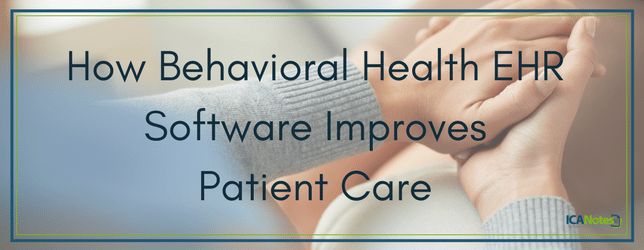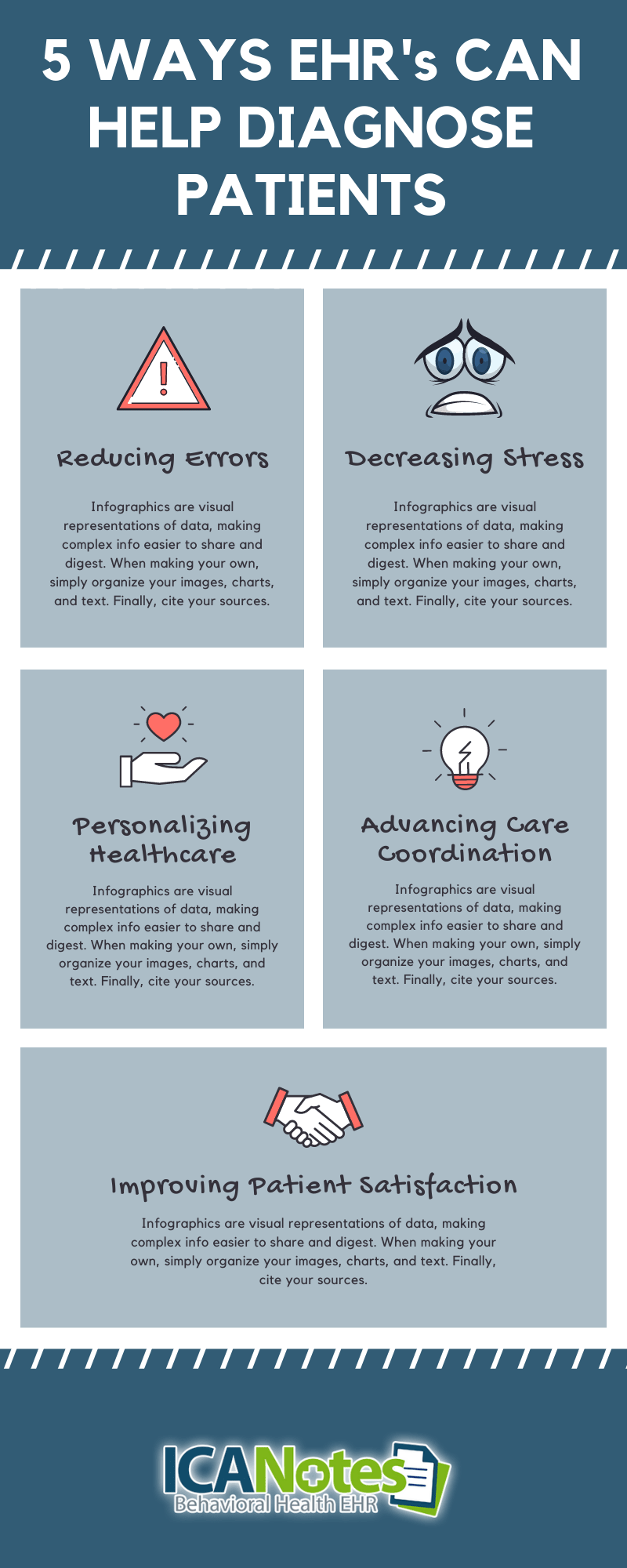How Electronic Health Records Are Improving Patient Care
As ways to integrate technology into healthcare practices are developed and implemented, studies are showing promising outcomes. More medical practices are choosing an EHR as a smart step forward in patient care, with roughly 75% of doctors now reporting their use.
However, behavioral health practices are lagging behind the overall medical field in EHR adoption. Without an urgent need to consolidate the complexities found in traditional medicine, many practices don’t see the switch to be necessary. But by examining the many ways EHRs can relate to improved patient care, it becomes readily apparent why such a move should be implemented.
How Behavioral Health EHR Software Improves Patient Care
To help practices still managing paper records, here are some of the many ways moving to an EHR can make a significant difference in patient care:
- Immediate Boost to Accuracy — By leaving handwritten notes behind, patients’ records are much clearer. Anyone accessing records can now review assessments and progress notes that don’t need to be deciphered.
- Significant Improvement in Prescribing — Patients can leave a psychiatry session and have a prescription ready for pick up by the time they reach their pharmacy, all managed through the EHR. This system can track prescriptions, providing anyone with access to records with the ability to review them and relate them to a treatment’s progress. Additionally, thanks to the closed system, the ability to abuse prescriptions is all but eliminated.
- Greatly Improved Communication — With EHRs providing real-time communication among clinic staff, with a comprehensive record of all patient care, information is always immediately available. This leads to more accurate communication, fewer duplicate tests and a quicker sharing of information. Also, with the EHR able to be viewed remotely, staff members can review data and respond without any delays.
- Consolidated Information — Behavioral healthcare personnel are able to see all aspects of a patient’s records in one place. All pertinent information, from progress and psychotherapy notes to prescriptions and demographic data, is a mouse click away.
- Greatly Reduced Billing Issues — Clients will no longer worry about billing concerns when their clinics embrace an EHR. By allowing these clinics to electronically submit claims to insurers, clients enjoy faster billing without the errors associated with paper systems. Also, clinics are better equipped to handle any concerns about authorizations from their insurance companies.
If your clinic is still on the fence about embracing an EHR, you owe it to yourselves to explore the ways it could benefit you. Here at ICANotes, we fully understand the level of commitment required to make such a move, and we’re here to help any behavioral health practice be prepared to switch to an EHR.
Your first step should be a thorough evaluation of EHRs, which is why we offer a free trial of our system. Start our trial today, learn more from our helpful, knowledgeable staff and learn how an EHR can play a major role in transforming your practice. The sooner you begin, the sooner you’ll be able to make antiquated, frustrating methods of clinic and patient care management a thing of the past.
Explore our site or give us a call at 866-847-3590 to learn more.
Related Posts:
Are Mental Health Record Guidelines the Same for Every State?
Biggest Challenges Facing Clinical Psychologists in 2018
How to Give Patients Access to Their Mental Health Records
The Benefits of a Paperless Therapy Practice


